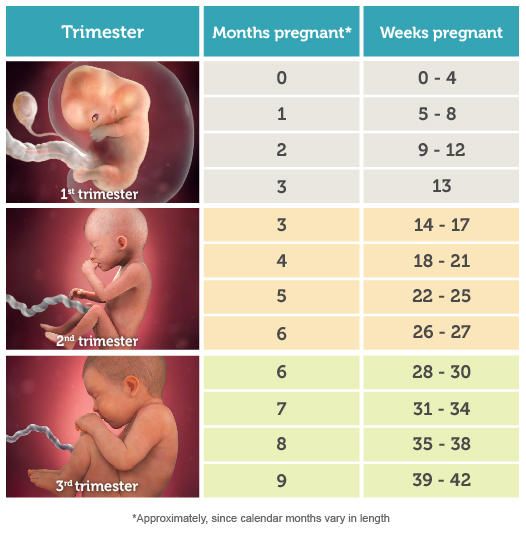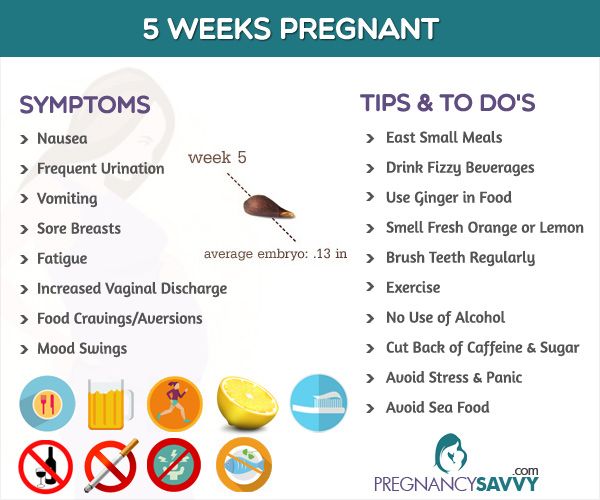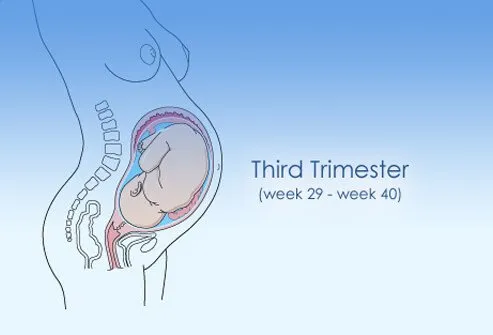Things to expect in the first trimester
First Trimester Of Pregnancy: What To Expect
What is the first trimester of pregnancy?
Pregnancy has three trimesters or stages. Each trimester is about 13 weeks or three months long. A full-term pregnancy lasts 40 weeks or between nine and 10 months. Your healthcare provider will talk to you about fetal development in terms of weeks. Your first trimester of pregnancy lasts until the 13th week of pregnancy.
It may seem strange, but your pregnancy actually begins on the first day of your last menstrual period. This is called the gestational age of the pregnancy. A pregnancy care provider calculates your due date by adding 40 weeks to the first day of your last menstrual period. So this means, by the time you know you’re pregnant, you’re already about four weeks along. This can be very confusing!
Understanding weeks of pregnancy
The first two weeks of pregnancy are part of your normal menstrual cycle — the first week is your period and the second week is ovulation. Once you ovulate, your egg travels through your fallopian tube to your uterus. If it meets up with sperm, they combine and conception occurs (fertilization).
During the third week of pregnancy, the fertilized egg travels to your uterus. On its way down to your uterus, it divides into more cells. Once it reaches your uterus, it implants into your uterine lining. This triggers your body to recognize that you’re pregnant and a series of changes begin to happen. Most people miss their period and then get a positive pregnancy test.
How long is the first trimester?
The first trimester begins before you’re pregnant. It starts on the first day of your last menstrual period and goes until the 13th week of pregnancy.
What can I expect in my first trimester?
Your first trimester of pregnancy is full of many physical and emotional changes. It can be a very overwhelming time, and your mind may be racing with questions. Plus, your hormones are in overdrive. In fact, your body produces more estrogen during one pregnancy than it does during your entire life when you’re not pregnant.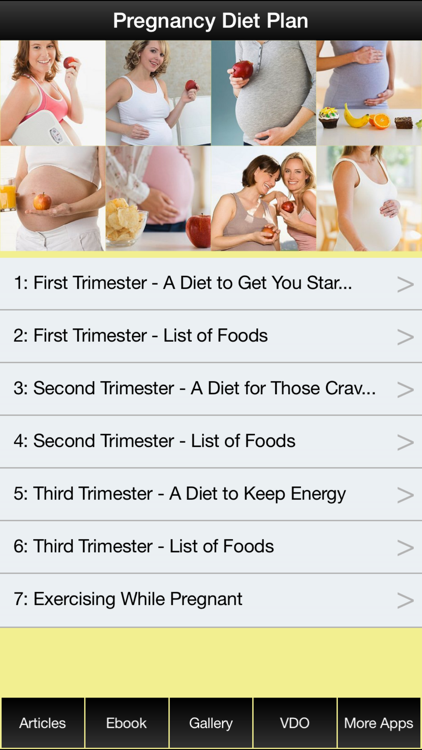 This surge in hormones can cause some unpleasant pregnancy symptoms. You may find yourself feeling moody, bloated and tired. While you may not see a prominent baby bump yet, your uterus is expanding and your blood volume is increasing.
This surge in hormones can cause some unpleasant pregnancy symptoms. You may find yourself feeling moody, bloated and tired. While you may not see a prominent baby bump yet, your uterus is expanding and your blood volume is increasing.
It’s OK to feel both excited and nervous. Talking to your friends, partner or a healthcare provider may help you feel better as you navigate your pregnancy journey.
What should I do in my first trimester?
Your first trimester is very important. You might not look or feel pregnant, but lots of changes are happening.
If you don’t have a healthcare provider or a pregnancy care provider, you should find one as soon as possible. Getting early pregnancy care can help you avoid any potential complications. Make a list of questions or concerns you have so you’re ready for your first appointment. Check with your health insurance about pregnancy coverage so you know what to expect and where you can get care. If you don’t have health insurance, there are programs and agencies to help you get prenatal care.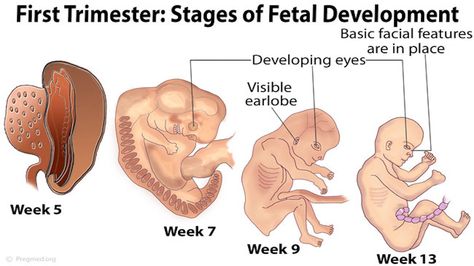
There are different types of pregnancy care providers that take care of you during pregnancy, labor, delivery and postpartum. These include obstetricians, midwives, and sometimes, primary care physicians. In addition to selecting a pregnancy care provider, you may also consider places to deliver your baby. While most people choose to give birth in a hospital, some people prefer birthing centers or home births.
Now is a great time to think about your overall health and what lifestyle changes you may need to make now that you’re pregnant. For example, think about how pregnancy affects your work, finances, habits and daily activities.
How does the fetus develop in the first trimester of pregnancy?
Several developments occur in the first trimester. Although you can’t see it happening, there’s a lot going on inside your body after sperm fertilizes an egg.
Weeks one to four of pregnancy
During the first month of pregnancy, several important structures form. These structures are a tiny clump of cells, but will grow to become the amniotic sac, placenta and umbilical cord. A tube that becomes the fetus’s brain and spinal cord forms, as well as its circulatory system. A face, circles for eyes and the beginning of a mouth take shape.
These structures are a tiny clump of cells, but will grow to become the amniotic sac, placenta and umbilical cord. A tube that becomes the fetus’s brain and spinal cord forms, as well as its circulatory system. A face, circles for eyes and the beginning of a mouth take shape.
The embryo is about a quarter-inch inch long — smaller than a grain of rice.
Weeks five to eight of pregnancy
Several major organs begin to develop during the sixth week of pregnancy including the fetal lungs, heart, ears, arms and legs. Bones begin to replace tissue. Its head is large in proportion to the rest of its body, but it look more human now. The fetus has a distinct mouth, nose and face. Some providers do an early ultrasound to confirm a heartbeat during this time.
By the end of the eighth week of pregnancy, the embryo becomes a fetus. It’s about 1 inch long or the size of a raspberry.
Weeks nine to 12 of pregnancy
Towards the end of your first trimester, the fetus will have toes, fingers and nails. It will start to move by opening and closings its hands and mouth. The fetus’s urinary and digestive systems are also fully functioning. At around 12 weeks of pregnancy, your provider can listen to the fetal heart using a Doppler ultrasound. It also has either a vagina or a penis at this point (though your provider can’t see it on an ultrasound).
It will start to move by opening and closings its hands and mouth. The fetus’s urinary and digestive systems are also fully functioning. At around 12 weeks of pregnancy, your provider can listen to the fetal heart using a Doppler ultrasound. It also has either a vagina or a penis at this point (though your provider can’t see it on an ultrasound).
By the end of the 12th week of pregnancy, the fetus is between 3 and 4 inches long — about the size of a plum. It weighs about 1 ounce.
Why is the first trimester of pregnancy so critical?
The first trimester is so important because most of the fetus’s major organs and body systems are developing. Toxins, harmful substances and infection can severely damage a fetus’s growth and development during this time. It could increase your baby’s risk of being born with a congenital disorder.
What are the most common symptoms during the first trimester?
Every person and every pregnancy is unique. An increase in hormones cause most pregnancy symptoms.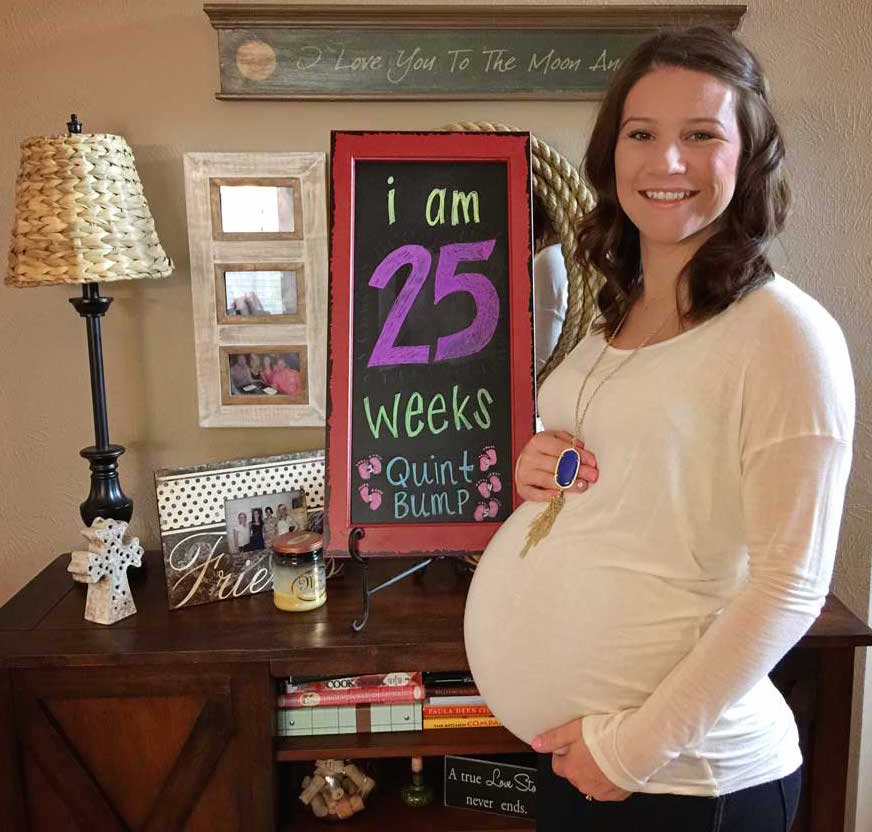 Some of the most common are:
Some of the most common are:
- Sore breasts: Hormones may make your breasts feel tender and large. It’s common to need bigger bras before the end of your first trimester. The veins in your breasts may become noticeable because they’re carrying more blood. Other changes to your breasts may include darkened areolas or changes to your nipples.
- Nausea: Morning sickness is one of the telltale signs of early pregnancy. Despite its name, it can last all day and all night. Try eating smaller meals or bland, low-fat foods. Some people find relief by eating foods containing ginger.
- Mood swings: The sudden rush of hormones may put you on a rollercoaster of emotions. You may alternate between feeling anxious or scared to excited or weepy within a span of 30 minutes. It may be helpful to talk through your feelings with a friend or your partner.
- Feeling tired: Your body is hard at work during the first trimester of pregnancy.
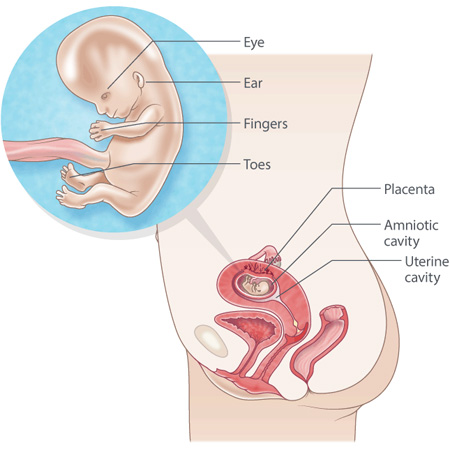 This may leave you feeling exceptionally tired. Be sure to get plenty of rest. Most people get some energy back in the second trimester.
This may leave you feeling exceptionally tired. Be sure to get plenty of rest. Most people get some energy back in the second trimester. - Needing to pee: Your uterus begins to grow to support the pregnancy. It may begin pressing on your bladder, causing you to need to pee more often.
- Acne or other skin changes: Hormones cause your skin to create more oil during pregnancy. This can lead to clogged pores and acne in some people. There are other skin conditions that appear during pregnancy, but most appear in the second or third trimesters.
- Mild shortness of breath: You may feel short of breath with light physical activity.
Your heart is pumping more blood during pregnancy. This means your pulse may be quicker and you may find yourself losing energy more easily. Be mindful of how much demand pregnancy puts on your body and take rests when you feel tired or out of breath.
What tests will I have in the first trimester of pregnancy?
Checkups, screenings and other tests during pregnancy help keep you and the fetus healthy. Care during pregnancy is commonly referred to as prenatal care. Prenatal care appointments are important because your pregnancy care provider discusses what you can expect during pregnancy and delivery, performs checkups and screenings and answers any questions you have.
Care during pregnancy is commonly referred to as prenatal care. Prenatal care appointments are important because your pregnancy care provider discusses what you can expect during pregnancy and delivery, performs checkups and screenings and answers any questions you have.
Your first prenatal visit
You’ll have between two and three prenatal visits during your first trimester. This can vary depending on your provider or if you’re a high-risk pregnancy. You can expect to discuss your personal medical history, gynecological and obstetrical history (prior pregnancies and births), as well any family medical history that may affect your pregnancy. This visit is very thorough to make sure you and the growing fetus are healthy.
At your first prenatal visit your provider will calculate your due date. You can also expect them to perform the following:
- A physical exam, including checking your weight and blood pressure.
- A pelvic exam.
- A Pap test (if you’re due for one).

- Tests to check for certain sexually transmitted infections (STIs).
- Check your pee for bacteria, protein and glucose (sugar).
- Order blood tests to check hormone levels, Rh factor, iron levels and certain diseases.
- Check the fetal heart rate.
Some providers use transvaginal ultrasound at your first appointment to confirm pregnancy and measure the fetal heart rate and size. This ultrasound also shows if you’re expecting multiples. A transvaginal ultrasound involves your provider placing a wand inside your vagina. Most pregnant people are offered at least one ultrasound in their first trimester, but the exact timing varies depending on your provider. If you’re expecting multiples, you may be offered additional ultrasounds in your first trimester.
Your provider may suggest other screening tests during pregnancy. Screening tests identify if you or the fetus are at risk for certain health conditions. Based on the results of your screening, you may need diagnostic tests.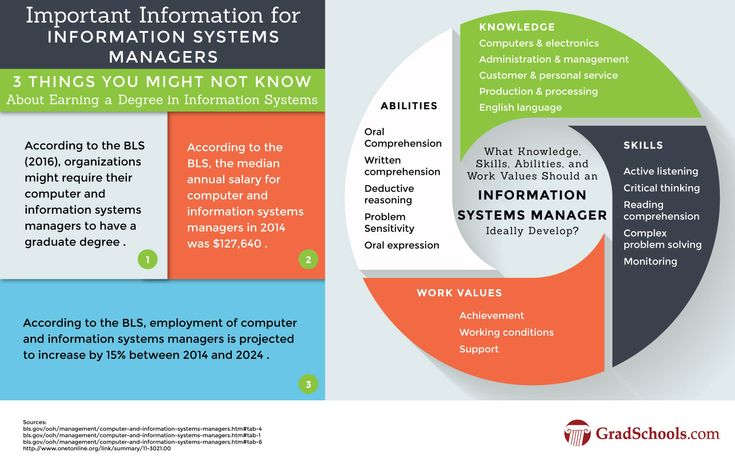 Diagnostic tests confirm or rule out health problems. In the first trimester, your provider may suggest a screening to detect a higher risk of chromosomal disorders like Down syndrome. Talk to your provider about the screenings they recommend.
Diagnostic tests confirm or rule out health problems. In the first trimester, your provider may suggest a screening to detect a higher risk of chromosomal disorders like Down syndrome. Talk to your provider about the screenings they recommend.
What should I not do in the first trimester of pregnancy?
Once you find out you’re pregnant, it’s normal to have to make some lifestyle changes. These changes help ensure that everyone is healthy. You should avoid the following things during your first trimester of pregnancy:
- Alcohol.
- Cigarettes and tobacco.
- Recreational drugs like opioids.
- Contact sports like football or activities that put pressure on your abdomen.
- Foods like raw fish (sushi), fish high in mercury, uncooked or undercooked meats, lunchmeat and unpasteurized milk, cheese or juice.
- Hot tubs and saunas.
How do I take care of myself in the first trimester of pregnancy?
Staying healthy is important throughout all three trimesters of pregnancy. Here are some helpful tips on staying healthy during the first 13 weeks of pregnancy:
Here are some helpful tips on staying healthy during the first 13 weeks of pregnancy:
- Stay active as much as you can. Listen to your body and stop for rest if you feel any discomfort while exercising. You may need to modify your exercise routine during pregnancy.
- Take a prenatal vitamin containing folic acid.
- Eat a variety of healthy foods including fruits, vegetables, meat, eggs and whole grains.
- Get plenty of rest.
- Drink plenty of water.
- Attend all of your prenatal appointments.
Is it normal to bleed during the first trimester of pregnancy?
Light bleeding or spotting during pregnancy is usually OK in the first few weeks of pregnancy. Some people experience implantation bleeding (when a fertilized egg burrows unto your uterine lining). Call your pregnancy care provider if you’re bleeding heavily or the bleeding lasts more than one day.
What prenatal vitamin should I take?
The vitamins and minerals in your food (or in prenatal vitamins) help support the fetus as it grows and develops. Most providers recommend taking a prenatal vitamin as soon as you begin trying to get pregnant. Vitamins containing folic acid, iron and calcium help support a healthy pregnancy. Talk to your provider if you’re unsure about which prenatal vitamin to take.
Most providers recommend taking a prenatal vitamin as soon as you begin trying to get pregnant. Vitamins containing folic acid, iron and calcium help support a healthy pregnancy. Talk to your provider if you’re unsure about which prenatal vitamin to take.
Can I drink caffeine during pregnancy?
Most healthcare providers recommend limiting caffeine consumption to under 200 milligrams per day during pregnancy. That’s about 12 ounces of coffee or three cans of Mtn Dew®. This is because a fetus can’t metabolize caffeine so it can build up in their body and cause complications.
When should I call my pregnancy care provider during the first trimester?
Call your provider right away if you have:
- A fever higher than 100.4 degrees Fahrenheit.
- Heavy bleeding or unusual vaginal discharge.
- Severe cramping in your belly, arms or legs or abdominal pain.
- Persistent vomiting and/or diarrhea.
- Fainting spells or dizziness.
- Swelling in your hands, fingers or face.

- Blurred vision or spots before your eyes.
A note from Cleveland Clinic
Pregnancy is an exciting, and sometimes scary, time in your life. You may feel overwhelmed with information and have lots of questions. During the first trimester of pregnancy, your body is growing and changing rapidly. The fetus is growing and developing, too. In fact, by the end of the first trimester, the fetus is the size of a lemon. You may begin having symptoms of pregnancy like nausea, sore breasts or needing to pee more often. Schedule an appointment with a pregnancy care provider as soon as you know you’re pregnant. Regular prenatal care is important so you and the fetus stay healthy and strong during pregnancy.
What to Expect, Baby Development
Written by Stephanie Watson
In this Article
- What Is the First Trimester of Pregnancy?
- First Trimester Changes in Your Body
- Baby’s Growth in the First Trimester
- First Trimester To-Dos
- Emergency Symptoms During the First Trimester
What Is the First Trimester of Pregnancy?
The first trimester is the earliest phase of pregnancy. It starts on the first day of your last period -- before you’re even actually pregnant -- and lasts until the end of the 13th week. It’s a time of great anticipation and of rapid changes for both you and your baby. Knowing what to expect will help you get ready for the months ahead.
It starts on the first day of your last period -- before you’re even actually pregnant -- and lasts until the end of the 13th week. It’s a time of great anticipation and of rapid changes for both you and your baby. Knowing what to expect will help you get ready for the months ahead.
First Trimester Changes in Your Body
Pregnancy is different for every woman. Some women glow with good health during those first 3 months; others feel absolutely miserable. Here are some of the changes you might notice, what they mean, and which signs warrant a call to your doctor.
Bleeding. About 25% of pregnant women have slight bleeding during their first trimester. Early in the pregnancy, light spotting may be a sign that the fertilized embryo has implanted in your uterus. But if you have severe bleeding, cramping, or sharp pain in your belly, call the doctor. These could be signs of a miscarriage or ectopic pregnancy (a pregnancy in which the embryo implants outside of the uterus).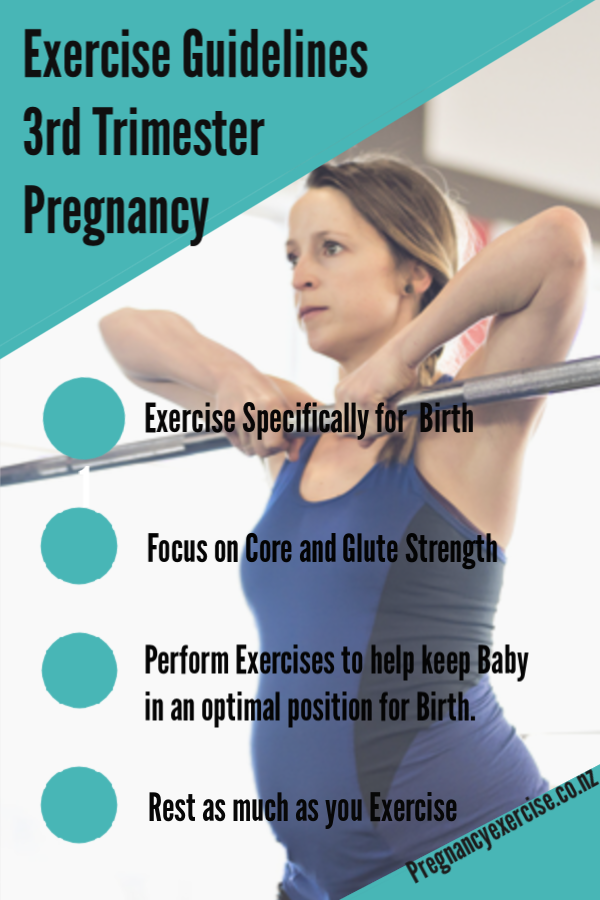
Breast tenderness.Sore breasts are one of the earliest signs of pregnancy. They're triggered by hormonal changes, which are getting your milk ducts ready to feed your baby. Your breasts will probably be sore throughout the first trimester. Going up a bra size (or more) and wearing a support bra can make you feel more comfortable. You probably won’t go back to your regular bra size until after your baby is finished nursing.
Constipation. During pregnancy, high levels of the hormone progesterone slow down the muscle contractions that normally move food through your system. Add to that the extra iron you're getting from your prenatal vitamin, and the result is uncomfortable constipation and gas that can keep you feeling bloated throughout your pregnancy. Eat more fiber and drink extra fluids to keep things moving more smoothly. Physical activity can also help.
If your constipation is really bothering you, talk to your doctor about what mild laxative or stool softeners are safe to use during pregnancy.
Discharge. It's normal to see a thin, milky white discharge (called leukorrhea) early in your pregnancy. You can wear a panty liner if it makes you feel more comfortable, but don't use a tampon because it could put germs into your vagina. If the discharge smells really bad, if it’s green or yellow, or if there's a lot of clear discharge, call the doctor.
Fatigue. Your body is working hard to support a growing baby. That means you’ll get tired more easily than usual. Take naps or rest when you need to during the day. Make sure you're getting enough iron. Too little can lead to anemia, which can make you even more tired.
Food likes and dislikes. Although you may not want a bowl of mint chip ice cream topped with dill pickles, as the old stereotype goes, your tastes can change while you're pregnant. More than 60% of pregnant women have food cravings. More than half have foods they really don’t like. Giving in to cravings from time to time is OK, so long as you eat healthy, low-calorie foods most of the time. The exception is pica -- a craving for nonfoods like clay, dirt, and laundry starch, which can be dangerous for you and your baby. If you experience this kind of craving, report it to your doctor right away.
Giving in to cravings from time to time is OK, so long as you eat healthy, low-calorie foods most of the time. The exception is pica -- a craving for nonfoods like clay, dirt, and laundry starch, which can be dangerous for you and your baby. If you experience this kind of craving, report it to your doctor right away.
Peeing a lot. Your baby is still pretty small, but your uterus is growing and it's putting pressure on your bladder. As a result, you may feel like you have to go to the bathroom all the time. Don't stop drinking fluids -- your body needs them -- but do cut down on caffeine (which stimulates your bladder), especially before bedtime. When nature calls, answer it as soon as you can. Don't hold it in.
Heartburn. During pregnancy, your body produces more of the hormone progesterone. It relaxes smooth muscles, like the ring of muscle in your lower esophagus, the tube that connects your mouth and stomach. These muscles normally keep food and acids down in your stomach. When they loosen up, you can get acid reflux, otherwise known as heartburn. To avoid the burn:
When they loosen up, you can get acid reflux, otherwise known as heartburn. To avoid the burn:
Eat a few small meals throughout the day.
Don't lie down right after you eat.
Avoid greasy, spicy, and acidic foods (like citrus fruits).
Try raising your pillows when you sleep.
Mood swings. Increased fatigue and changing hormones can put you on an emotional roller coaster that takes you from joyous to miserable, or from hopeful to terrified in a matter of seconds. It's OK to cry, but if you feel overwhelmed, try to find an understanding ear. You can talk to your partner, a friend, a family member, or even a professional.
Morning sickness.Nausea is one of the most common pregnancy symptoms. Up to 85% of pregnant women have it.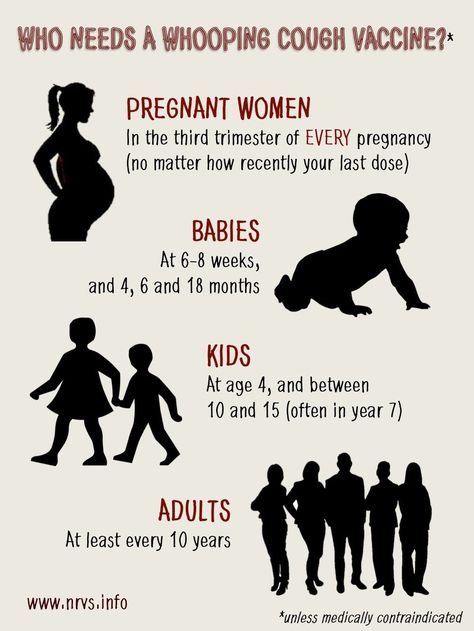 It results from hormone changes in your body and it can last through the entire first trimester. For some pregnant women, nausea is mild. Others can't start their day without vomiting. Nausea is usually worse in the morning (hence the name, "morning sickness"). To calm your nausea, try eating small, bland, or high-protein snacks (crackers, meat, or cheese) and sipping water, clear fruit juice (apple juice), or ginger ale. You may want to even do this before you get out of bed. Avoid any foods that make you sick to your stomach. Nausea itself isn't anything to worry about, but if it’s severe or just won’t go away, it can affect the amount of nutrition your baby gets. Call your doctor if you can't stop throwing up or can't keep down any food.
It results from hormone changes in your body and it can last through the entire first trimester. For some pregnant women, nausea is mild. Others can't start their day without vomiting. Nausea is usually worse in the morning (hence the name, "morning sickness"). To calm your nausea, try eating small, bland, or high-protein snacks (crackers, meat, or cheese) and sipping water, clear fruit juice (apple juice), or ginger ale. You may want to even do this before you get out of bed. Avoid any foods that make you sick to your stomach. Nausea itself isn't anything to worry about, but if it’s severe or just won’t go away, it can affect the amount of nutrition your baby gets. Call your doctor if you can't stop throwing up or can't keep down any food.
Weight gain. Pregnancy is one of the few times in a woman's life when weight gain is considered a good thing, but don't overdo it. During the first trimester, you should gain about 3-6 pounds (your doctor may suggest you adjust your weight gain up or down if you started your pregnancy underweight or overweight).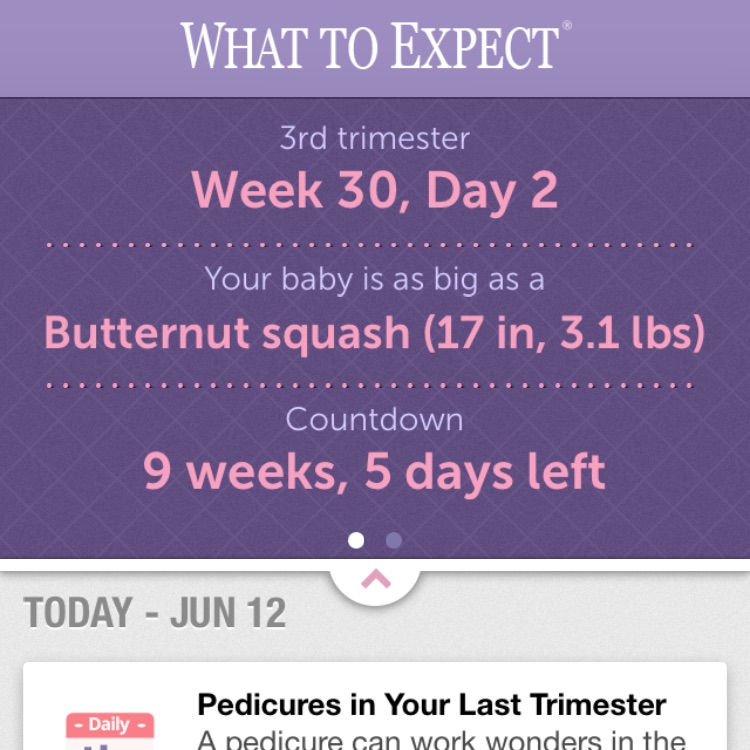 Although you're carrying an extra person, you really aren’t eating for two. You only need about an extra 150 calories a day during the first trimester. Get those calories the healthy way, by adding extra fruits and vegetables, milk, whole-grain bread, and lean meat to your diet.
Although you're carrying an extra person, you really aren’t eating for two. You only need about an extra 150 calories a day during the first trimester. Get those calories the healthy way, by adding extra fruits and vegetables, milk, whole-grain bread, and lean meat to your diet.
Baby’s Growth in the First Trimester
During the first 13 weeks, your baby changes from a fertilized egg into a fully-formed fetus. All the major organs and systems are taking shape. That means your baby could be harmed if you use street drugs, have an illness, or get exposed to radiation. Here’s what’s happening:
The fertilized egg becomes a cluster of rapidly dividing cells that implants in your uterus. The placenta, umbilical cord and amniotic sac all start to grow.
Your baby’s nervous system changes from an open neural tube to a brain and spinal cord. Nerves and muscles start working together.
 Your baby can move on its own, but it’s too soon for you to feel it.
Your baby can move on its own, but it’s too soon for you to feel it. The heart takes shape and begins to beat. You can hear it on ultrasound as early as week 6. It beats 120 to 160 times per minute. Red blood cells are forming.
Your baby develops a digestive system, including intestines and kidneys.
They have lungs and other major organs, but they’re not fully developed.
A soft skeleton is starting to grow.
Your baby starts to look like a baby, with arms, legs, fingers, and toes. Their face gets eyes, ears, a nose, and mouth. A tongue and tooth buds grow. Eyelids cover your baby’s eyes, and by the end of the trimester, they even have fingernails.
Genitals start to grow, but it’s too early to tell by ultrasound whether you’re having a girl or a boy.
By the end of the first trimester, your baby will be about 2 ½-3 inches long.
First Trimester To-Dos
Having a baby is one of the most joyous times in many women's lives. From thinking about the day you'll bring your little one home, to picking a name and nursery colors, the excitement is intense. But you also need to take some practical steps during the first trimester, including:
Choose a doctor. Do you want an obstetrician or a midwife? Get referrals and find out what your health insurance covers.
Schedule a prenatal visit as soon as you know you’re pregnant. You’ll cover a lot of ground in the first appointment. The doctor will take a full medical history and talk to you about your lifestyle and health habits. They’ll figure out your due date. You’ll also have blood and urine tests and possibly a pelvic exam.
Continue with prenatal visits every 4 weeks. The doctor will check your weight and blood pressure, test your urine and listen to your baby’s heartbeat.
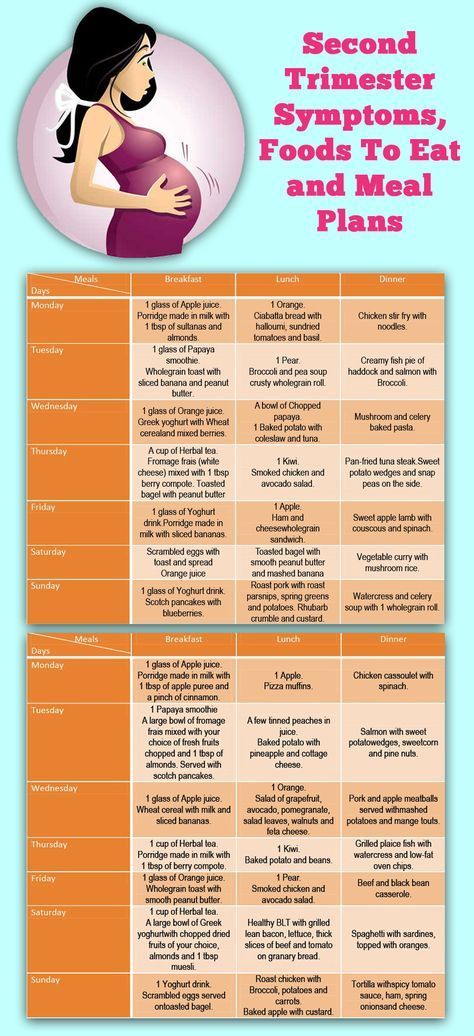
Learn what other tests and screenings you may need, such as tests to look for genetic problems with your baby.
Start taking a prenatal vitamin with at least 400 micrograms of folic acid to help your baby’s brain and spinal cord grow properly.
Ask your doctor what prescription and over-the-counter medicines you can still safely take.
Take a look at your diet and make any changes you need to make sure you and your baby get the right nutrition. Drink plenty of water.
Break bad habits like smoking and illegal drug use. Cut out alcohol and cut down on caffeine.
Keep up your workout routine, but listen to your body. You may need to change what kind of exercise you do, or ease up a little.

Research what it costs to have a baby and start making changes. Will you have to pay for child care? Will you cut back on work? Draw up a new budget that reflects the new addition.
Decide when and how you’ll share your news. You may want to wait until you’ve heard the baby’s heartbeat, or made it safely past the first trimester. It’s also smart to find out your company’s policies on maternity leave and learn your rights before you tell your boss.
Emergency Symptoms During the First Trimester
Any of these symptoms could be a sign that something is seriously wrong with your pregnancy. Don't wait for your prenatal visit to talk about it. Call your doctor right away if you experience:
- Severe abdominal pain
- Heavy bleeding
- Severe dizziness
- Rapid weight gain or too little weight gain
Health & Pregnancy Guide
- Getting Pregnant
- First Trimester
- Second Trimester
- Third Trimester
- Labor and Delivery
- Pregnancy Complications
- All Guide Topics
1st trimester of pregnancy: what happens to the fetus
1st trimester of pregnancy: what happens to the fetus - Private maternity hospital Ekaterininskaya Clinics1st trimester: 1st-12th weeks
The gestational age is calculated from the first day of the last menstruation, since it is difficult to determine the exact day of conception. Since conception usually occurs in the middle of the menstrual cycle, you are not actually pregnant during the first two weeks, but this period is counted as the beginning of pregnancy.
Since conception usually occurs in the middle of the menstrual cycle, you are not actually pregnant during the first two weeks, but this period is counted as the beginning of pregnancy.
As soon as the fertilization of the egg takes place around the 3rd week, the hormones begin to produce changes in your body little by little. As a result, you may experience some of the following symptoms:
- Morning sickness. As a result of rising levels of hormones characteristic of pregnancy, up to 80% of women in the 1st trimester experience morning sickness with symptoms such as nausea and vomiting. The idea that such malaise is observed only in the morning is a common misconception. In fact, symptoms can appear at any time of the day or night. Up to 1 in 5 women experience morning sickness in the 2nd trimester of pregnancy and can sometimes persist throughout pregnancy.
If you experience morning sickness, avoid foods that make you sick, eat little and often, avoid fatty and spicy foods, drink more water.
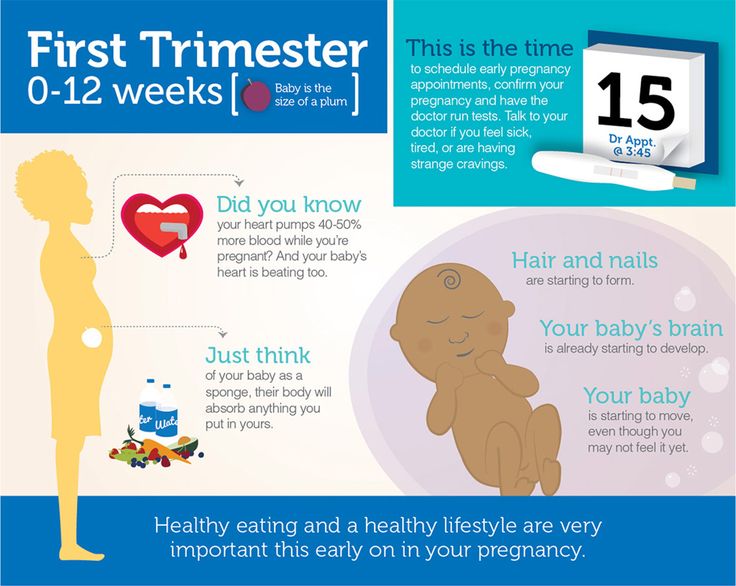 If you experience severe symptoms or symptoms that bother you, see your doctor.
If you experience severe symptoms or symptoms that bother you, see your doctor. - Breast changes. The mammary glands will begin to increase in size, soreness may appear. The nipples will increase in size, become darker and more protruding.
- Fatigue. High levels of the hormone progesterone can make you feel tired and sleepy. Rest as often as possible in a horizontal position with your legs up and eat as well as possible, which is not easy if you are experiencing morning sickness!
- Increased emotionality. A higher level of emotionality, manifested as a result of an increase in hormone levels, is normal. Understanding and patience on the part of your partner and loved ones is very important here.
- Food likes and dislikes. You may find yourself intolerant of one food and addicted to another. This is usually not a problem, unless you feel like eating weird foods like chalk.
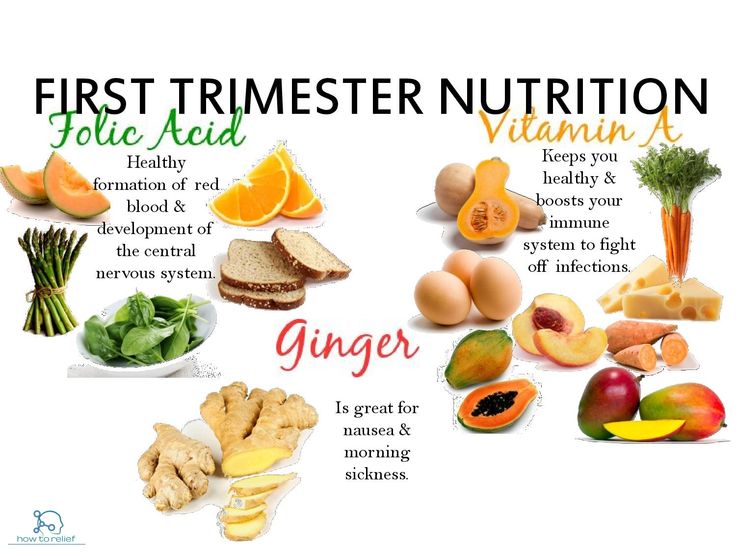 If you are concerned about the situation, contact your doctor.
If you are concerned about the situation, contact your doctor. - Frequent urination. As your fluid levels increase and your uterus puts pressure on your bladder, you will become more likely to visit the toilet. Go to the toilet as soon as you feel the need - this minimizes the pressure on the bladder.
- Feeling of dizziness. Sometimes you may feel a little dizzy (this is due to hormonal changes). Try not to stay on your feet for a long time and slowly rise from a sitting or lying position. If you experience severe dizziness, contact your doctor immediately.
- Heartburn and constipation. Your digestive system will slow down to give you more time to digest your food. This can lead to heartburn and constipation. To help manage heartburn, try to eat small meals at regular intervals and avoid fried or spicy foods and carbonated drinks. Constipation is helped by eating a diet rich in fiber, maintaining physical activity and drinking plenty of water.
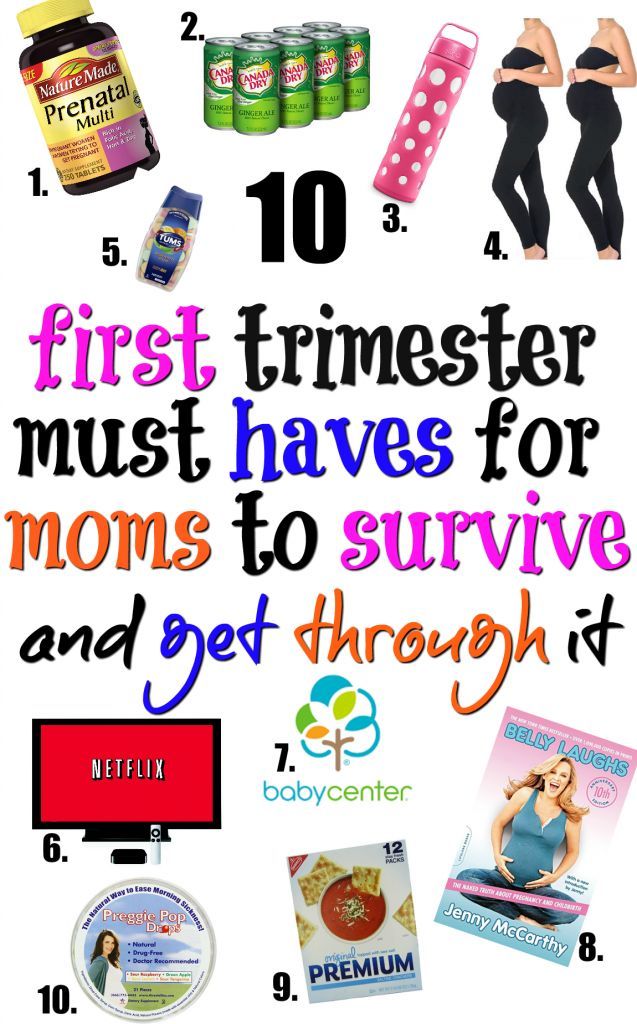
1st trimester milestones
- Approximately 7 days after fertilization, the embryo implants in the uterine wall. The placenta, umbilical cord and amniotic sac will begin to form to provide nourishment and protection to the embryo.
- By the end of the first 12 weeks of pregnancy, the uterus is palpable through the wall of the abdomen, the abdomen will begin to grow.
Child development in the 1st trimester of pregnancy
By the end of the 1st trimester:
- All the main organs of the baby are formed, the circulatory system works.
- The development of the sexual organs has begun.
- Fingers are formed on the hands and feet, nails have appeared.
- Facial features have formed.
- The length of the baby's body is about 6 cm from the head to the lower part of the body, he is already recognizable. The baby moves in the amniotic sac, but you don't feel it move yet.

Clinic mobile app
You can make an appointment with a doctor, get tests
and much more...
Fill out the form to make an appointment or order a call back
I agree with personal data processing policy and user agreement I also give my consent to the processing of personal data.
Sign up for a consultation
I agree with personal data processing policy and user agreement I also give my consent to the processing of personal data.
By continuing to use rd.clinic23.ru, you agree to the use of cookies. How to ban the use of certain cookies can be found in Politics
First pregnancy, what you need to know?
The first pregnancy in a woman's life is always an important event. Information about what to expect during this period is very easy to find. But often the sources of information are not trustworthy and offer conflicting information.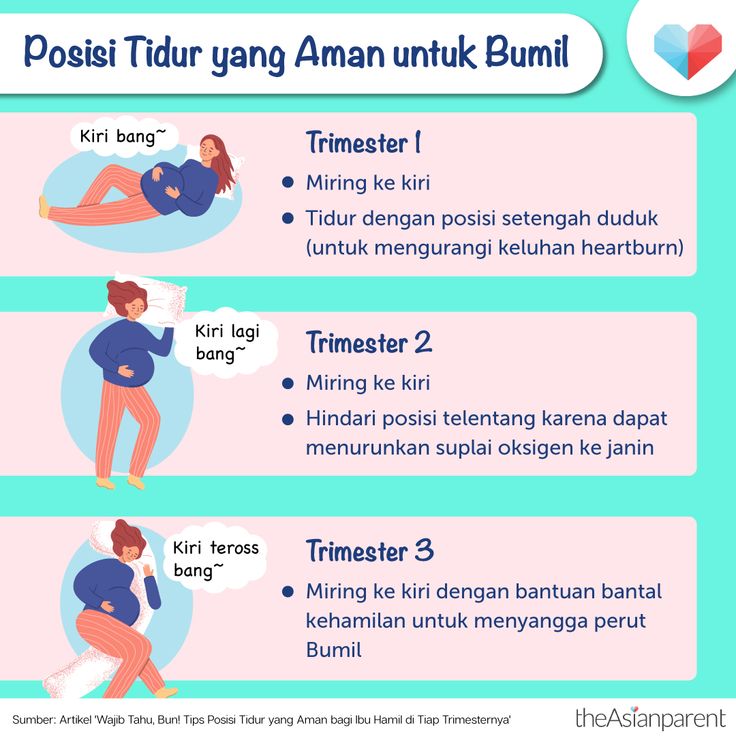
Things a expectant mother needs to know
Pregnancy normally lasts 40-42 weeks and ends in vaginal delivery or caesarean section. This period will be divided into trimesters, the first - to 13 weeks inclusive, the second - from 14 to 27 weeks, and the third - from 28 weeks to delivery. Each trimester has its own characteristics.
The first trimester is the most unpredictable. It can pass very easily - some women do not even notice their condition. But in the first trimester, side effects of a sharp hormonal change in the body are also possible. Morning sickness, sudden bouts of weakness, low blood pressure, irritability, increased reaction to smells - all this happens due to the fact that the hormonal background changes dramatically in the body. All of these symptoms in the first trimester are normal, but they should be told to the attending physician.
In the first trimester, the laying and formation of the fetal body takes place.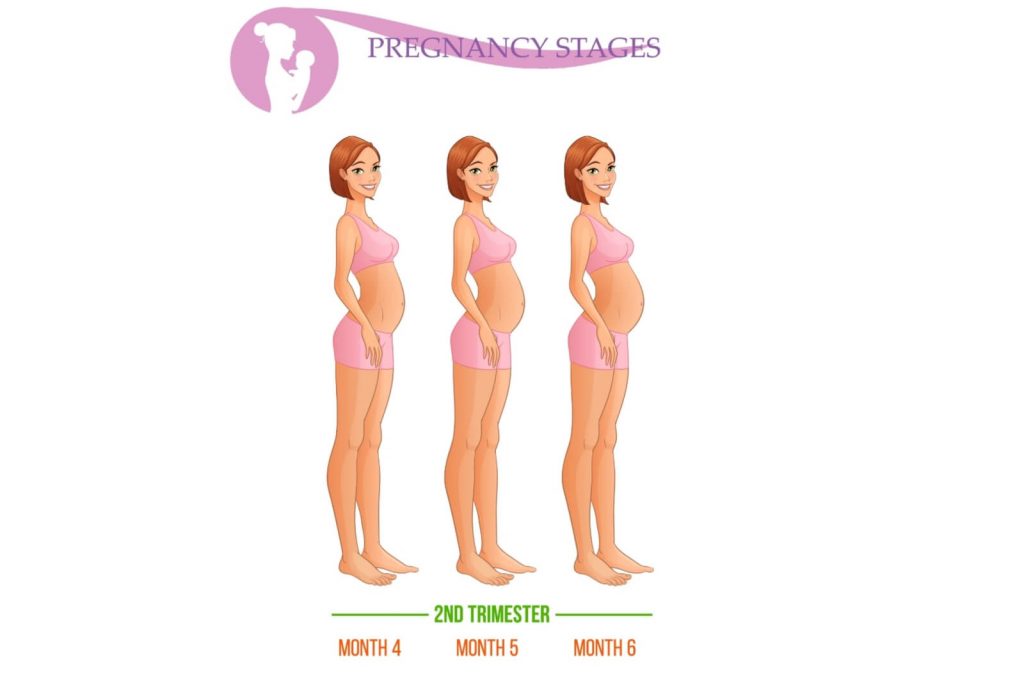 Most congenital pathologies are the result of violations during this period. In order not to provoke developmental anomalies, the expectant mother should avoid pathogens. Alcohol, nicotine, a range of drugs, and toxins in the water and air can adversely affect the health of the unborn child. You should also carefully approach the choice of cosmetics and hair products.
Most congenital pathologies are the result of violations during this period. In order not to provoke developmental anomalies, the expectant mother should avoid pathogens. Alcohol, nicotine, a range of drugs, and toxins in the water and air can adversely affect the health of the unborn child. You should also carefully approach the choice of cosmetics and hair products.
Pregnancy: first week
A woman can assume that the first week of pregnancy has begun only if she carefully prepared for the process of conception, calculated the time of ovulation, and chose the time for sexual intercourse. But even in this case, there can be no 100% certainty. For the first two or three weeks, a woman cannot independently determine whether pregnancy has occurred or not. Even if the fertilization of the egg has occurred, and the rapid process of embryo development has begun, it is still so small that it is not felt in the mother's body.
However, from the first days you can switch to a lifestyle suitable for pregnant women.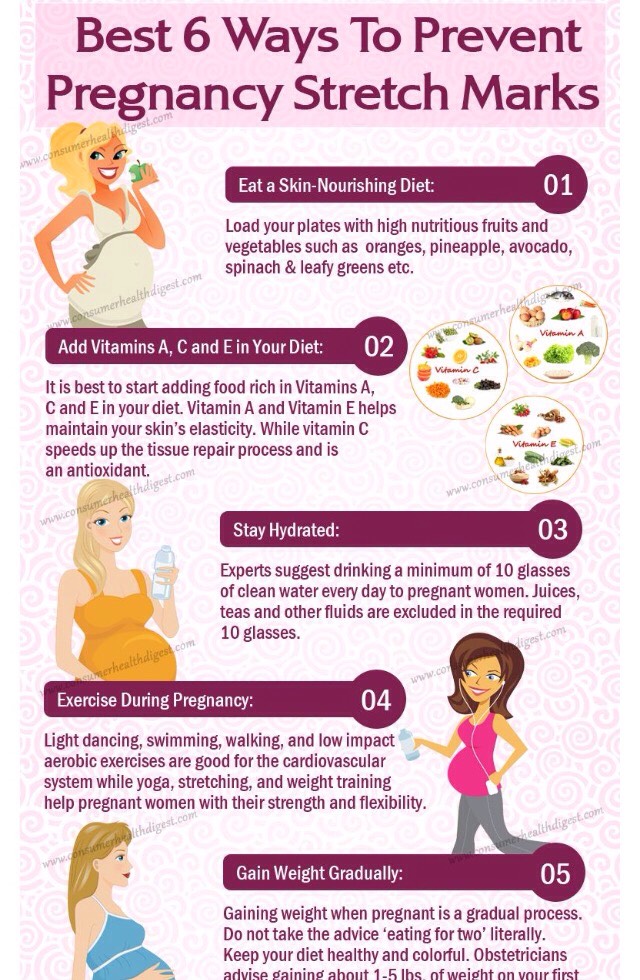 It is recommended to avoid harmful foods, strong drugs, alcohol, smoking, stress; engage in gentle sports, walk in the fresh air.
It is recommended to avoid harmful foods, strong drugs, alcohol, smoking, stress; engage in gentle sports, walk in the fresh air.
In the second trimester, the fetus is almost formed and grows rapidly. At about 4.5 - 5 months, a woman begins to feel the movement of the child. At the same time, the belly appears and begins to grow. The baby acquires the ability to hear sounds, and if the mother or father is talking to him, he can move in response. The second trimester proceeds with a minimum number of complications, this is the best period for official preparation for childbirth: choosing a clinic, paperwork, settling issues with work, and so on. By the end of the second trimester, you should pack a bag for the maternity hospital, and in addition, sign up for a course for new mothers. In such courses, women are taught not only the correct behavior in childbirth, but also the handling of a newborn baby.
In the third trimester, the fetus is already formed, even with the onset of premature birth, the child can be saved. However, normal gestation up to 40-42 weeks is the best option. Due to the large and heavy belly, the expectant mother experiences inconvenience: her back may hurt, her legs may swell, and during sleep, a woman cannot calmly change her position. On the recommendation of a doctor, you can wear a bandage for pregnant women: this is a wide elastic belt that supports the stomach. The third trimester is considered the most difficult.
However, normal gestation up to 40-42 weeks is the best option. Due to the large and heavy belly, the expectant mother experiences inconvenience: her back may hurt, her legs may swell, and during sleep, a woman cannot calmly change her position. On the recommendation of a doctor, you can wear a bandage for pregnant women: this is a wide elastic belt that supports the stomach. The third trimester is considered the most difficult.
Whatever the course of pregnancy, it should be remembered that this is not a disease, but a natural state for a woman. Therefore, the expectant mother should lead a familiar lifestyle, excluding only that which can harm the baby. A pregnant woman can continue to work, travel, engage in her favorite hobby. This will create a good mood for the mother, and the hormones of joy, along with the bloodstream, are transmitted to the baby. The psychological comfort of the expectant mother is no less important than compliance with other recommendations.
